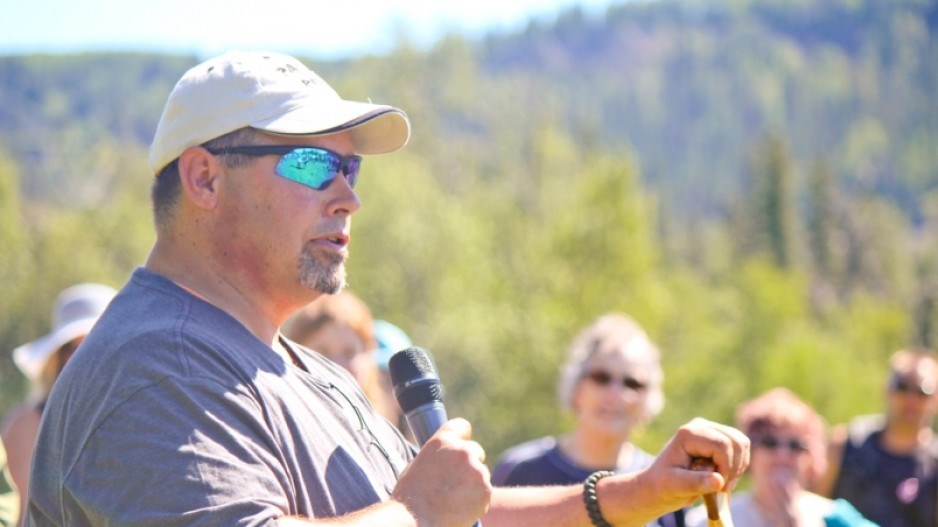The West Moberly and Prophet River First Nations argue that work outside Fort St. John, B.C. on the $10.7-billion Site C project should stop until the courts can determine whether it violates aboriginal treaty rights.
"Today, we're asking the courts to stop development on Site C until that question can be asked," West Moberly Chief Roland Willson said outside the Supreme Court in Vancouver on Monday.
"Through this whole process, no one has asked that question. This project, in our view, unjustifiably infringes the treaty and they have never done a test on it."
Site C is the third dam being built on the Peace River, and has been under construction since July 2015 after being approved by the BC Liberals at a cost of $8.8 billion. The new NDP government allowed construction to continue last December after a four-month regulatory review, and bumped up its budget to $10.7 billion.
When completed, the dam would produce up to 5,100 gigawatts of energy per year and add 1,100 megawatts of capacity to the provincial grid. It would also flood some 100-plus kilometres of the Peace River valley and its tributaries, including farmland and First Nations cultural sites.
In response, the province says courts "have not yet considered whether it is possible for treaty rights to be infringed through 'cumulative impacts' to specific, defined areas," according to a CBC report.
"Consultation will not always lead to accommodation, and accommodation may or may not result in agreement. In the absence of agreement, Indigenous groups do not have a veto over the government's proposed course of action."
Several project agreements have also been signed with a number of First Nations in Northeast B.C. over the project.
Still, Willson argues First Nations continue to live with the impacts of the Bennett and Peace Canyon dams upstream of Site C, and the cumulative impacts of all three would continue to disrupt and displace First Nations hunters, trappers, and fishers, and interfere with their way of life by destroying habitat home to plants and animals relied on for spiritual, medicinal, and food purposes.
The Peace River shouldn't be a "sacrifice zone," when the energy needed can be produced through alternatives, including geothermal, solar, wind, and natural gas, Willlson said.
"The whole point of this is to get them off this $12 billion debacle and get them on to some smart alternatives, and save that valley, not just for us, but for the rest of Canada," Willson said.
"The Peace River Country is not a sacrifice zone for anybody. It's our home. We deserve to live there in peace, we deserve to live there in the honour of the treaty that stated no forced interference.
"When you're down to 219 caribou and you can't fish the fish out of your lake that you've lived on for a thousand of years, that's pretty forced interference."
The trial is expected to last about two weeks and is being video recorded. It is being heard by Justice Warren Milman.
Courts have previously dismissed lawsuits by the First Nations and landowners seeking a judicial review of Site C.
However, the courts have yet to rule whether the dam infringes Treaty 8, with one provincial Supreme Court justice noting that matter would need to be decided in a civil trial in a September 2015 ruling against the First Nations.
There were 2,810 workers employed in some capacity on Site C in May.
In its December approval, the NDP said BC Hydro and the transportation ministry would work with Treaty 8 nations to redesign the Highway 29 realignment at Bear Flat over Cache Creek to "reduce the effects on potential burial sites and sacred places."
It also said it would advance reconciliation with local First Nations, and establish a Treaty 8 advisory committee that would give input to a Peace River Legacy Fund.




